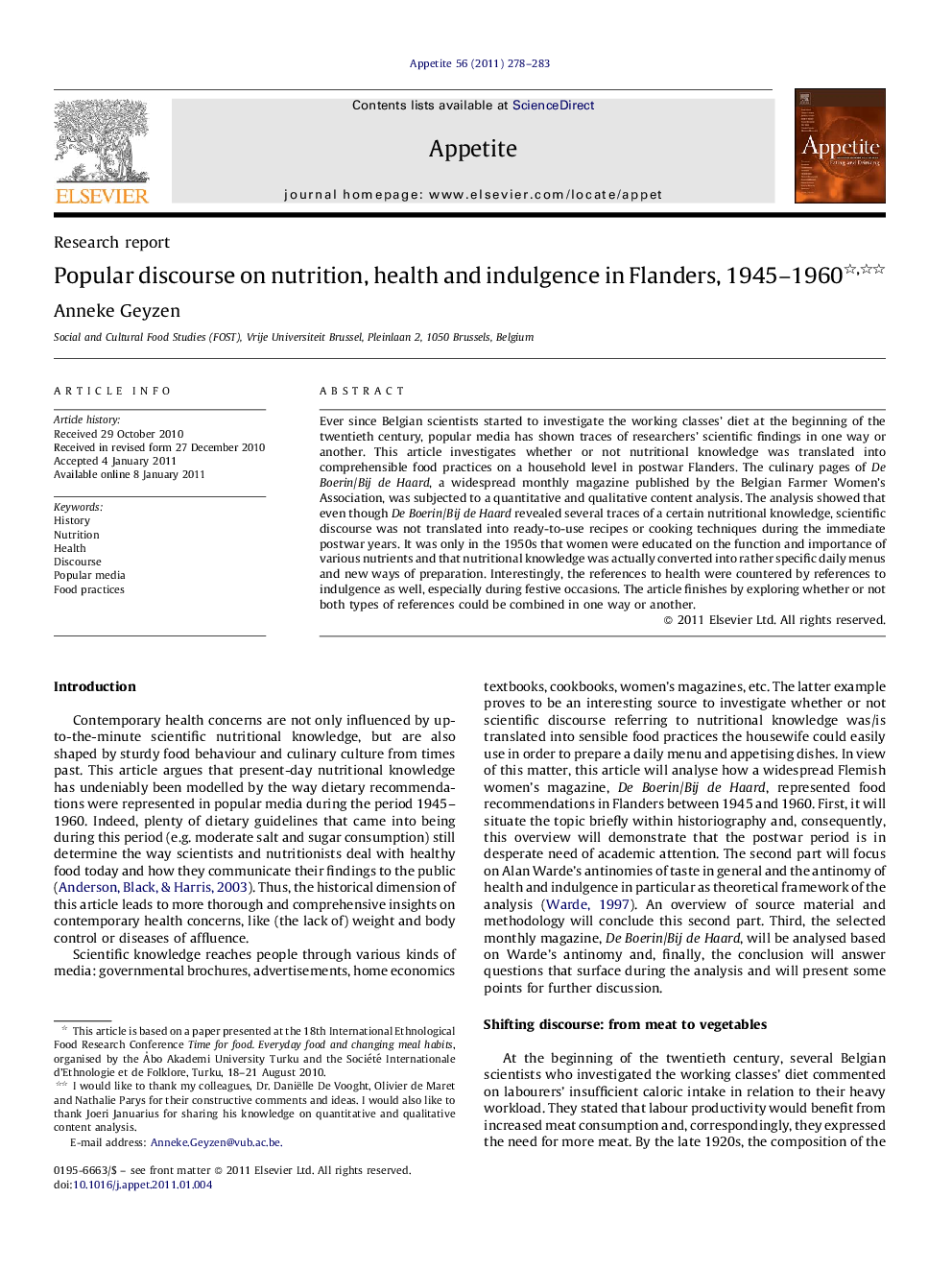| Article ID | Journal | Published Year | Pages | File Type |
|---|---|---|---|---|
| 939839 | Appetite | 2011 | 6 Pages |
Ever since Belgian scientists started to investigate the working classes’ diet at the beginning of the twentieth century, popular media has shown traces of researchers’ scientific findings in one way or another. This article investigates whether or not nutritional knowledge was translated into comprehensible food practices on a household level in postwar Flanders. The culinary pages of De Boerin/Bij de Haard, a widespread monthly magazine published by the Belgian Farmer Women's Association, was subjected to a quantitative and qualitative content analysis. The analysis showed that even though De Boerin/Bij de Haard revealed several traces of a certain nutritional knowledge, scientific discourse was not translated into ready-to-use recipes or cooking techniques during the immediate postwar years. It was only in the 1950s that women were educated on the function and importance of various nutrients and that nutritional knowledge was actually converted into rather specific daily menus and new ways of preparation. Interestingly, the references to health were countered by references to indulgence as well, especially during festive occasions. The article finishes by exploring whether or not both types of references could be combined in one way or another.
Research highlights► I analysed the translation of postwar scientific nutritional discourse into sensible food practices. ► Source material involved a particular Flemish women's magazine, De Boerin/Bij de Haard, and methodology was based on quantitative and qualitative content analysis. ► Dietary recommendations became more concrete throughout the years, but were not always followed by Flemish households, due to sturdy culinary customs.
